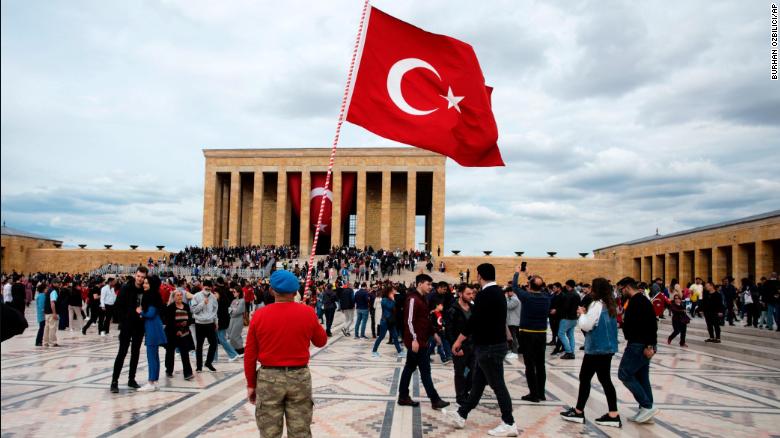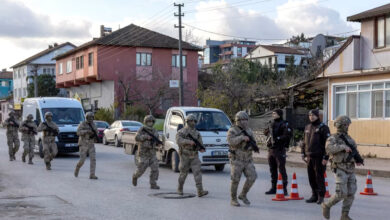
The nation of Turkey has had it with being associated with a large bird that is best known as a symbol of the North American Thanksgiving holiday.
On Thursday, the United Nations recognized the country’s rebranding to Turkiye, pronounced tur-key-yay, in a move Foreign Minister Mevlut Cavusoglu said would “increase our country’s brand value.”
“The main reason why Turkey is changing its name is to eliminate the association with the bird,” said Sinan Ulgen, Chairman of Istanbul-based think-tank EDAM. “But also, the term is used in colloquial language to denote failure.”
For President Recep Tayyip Erdogan, who is running for re-election next year, the new name expresses the “culture, civilization and values of the Turkish nation in the best way.”
International organizations are now obliged to use the new name, but it won’t happen overnight for the broader public, Ulgen told CNN. “It will likely take many years for the broader international public to switch from Turkey to Turkiye.”
This isn’t the first time the nation has tried to change its name, he said. A similar attempt was made in the mid-1980s under Prime Minister Turgut Ozal but it never gained as much traction, he said.
There may be political motivations behind the move as Turks return to the polls next June amid a biting economic crisis.
This is “another strategy deployed by the Turkish government to reach out to the nationalist voters in a crucial year for Turkish politics,” said Francesco Siccardi, senior program manager at the Carnegie Europe think tank.
The timing of the name change is “crucial” to next year’s elections, he said. “The decision on the name change was announced last December, when President Erdogan was trailing in all opinion polls and the country was navigating one of the worst economic crises of the last 20 years.”
Erdogan’s position in the polls has dropped significantly over the years. Polls from late last year show support for the ruling AK party at around 31-33% according to Reuters, down from 42.6% during the 2018 parliamentary elections.
Ulgen however said the name change was more of a rebranding strategy to boost the country’s international standing rather than a pre-election stunt.
Turkey’s foreign trade deficit climbed 98.5% year-on-year to $6.11 billion in April, Reuters reported, citing the Turkish Statistical Institute. Annual inflation jumped to 73.5% last month, a 22-year high.
Analysts say that at times of crisis, the president tends to resort to populist moves to deflect attention from problems at home. The economic turmoil, having already brought people into the streets, has been a headache for the government.
“The new name will both distract the domestic audience from more concrete, pressing problems and offer President Erdogan another argument for his case for a stronger, more traditional Turkey,” said Siccardi.
In another populist move in 2020, Erdogan issued a decree to convert Istanbul’s historic Byzantine Hagia Sofia Museum into a mosque.
“In the absence of concrete policies to handle the country’s economic and political problems, Erdogan seeks salvation in populist identity politics,” Political analyst Seren Korkmaz wrote of the move at the time. “He boosts Turkish nationalism and Islamism and targets opposition figures.”
The new name also holds symbolic value, having been adopted in 1923 after the new nation emerged from the ashes of WWI. Its adoption globally would “cement Erdogan’s place in Turkish history next to the republic’s founding father Mustafa Kemal Ataturk,” said Siccardi.




